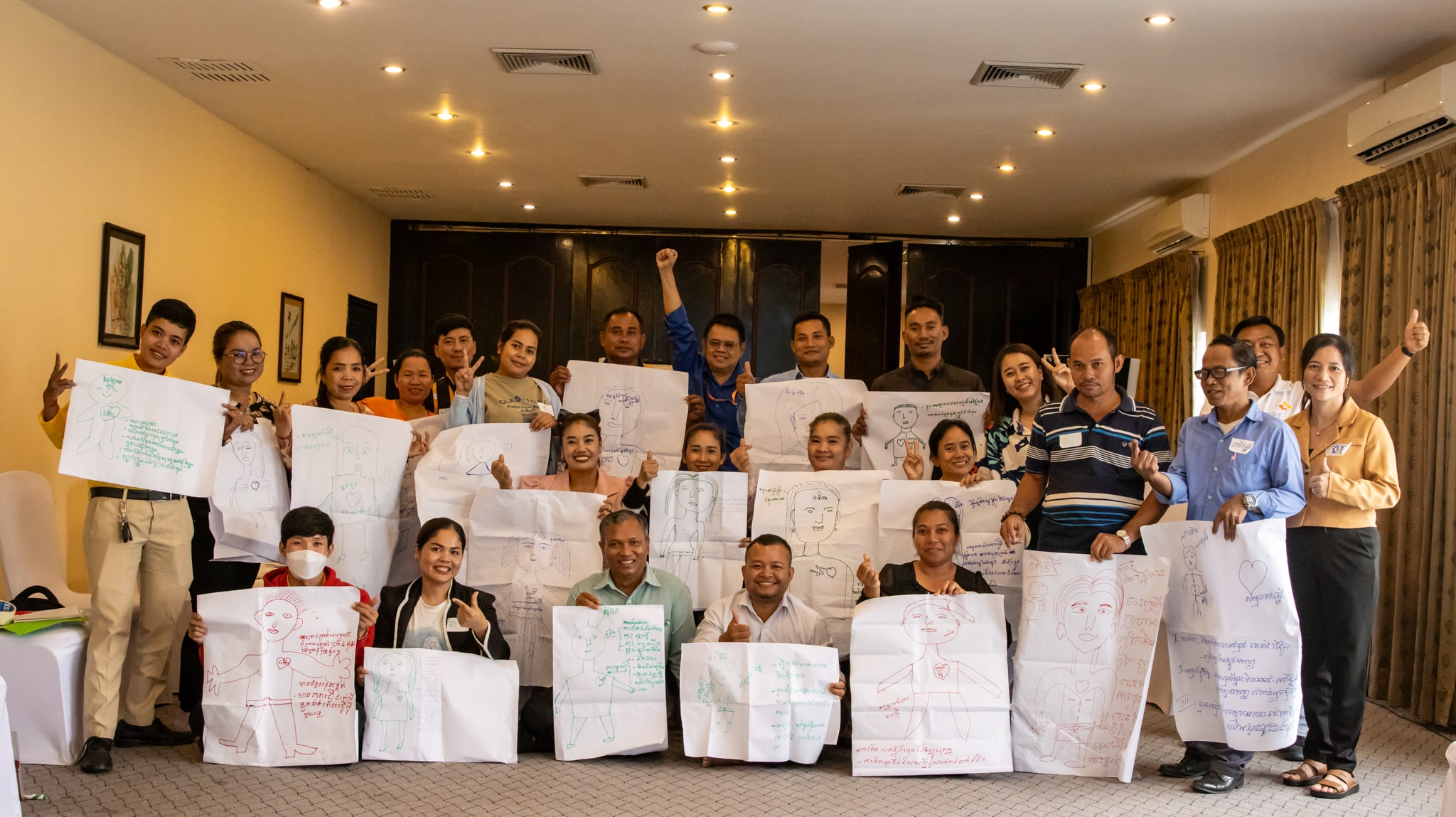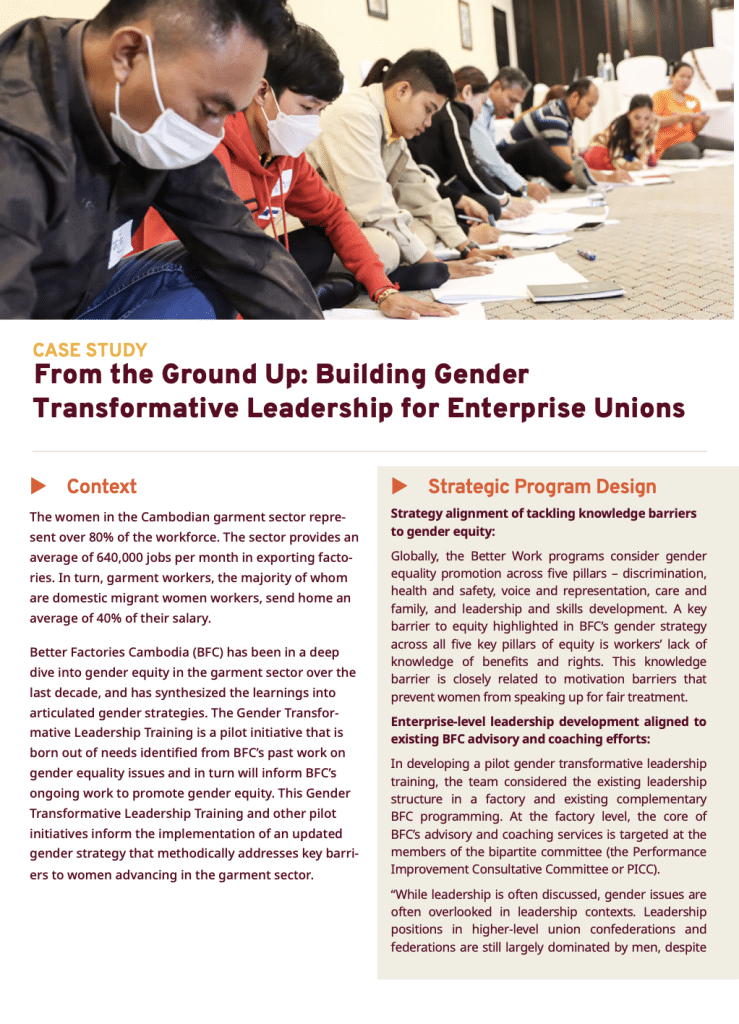The women in the Cambodian garment sector represent over 80% of the workforce. The sector provides an average of 640,000 jobs per month in exporting factories. In turn, garment workers, the majority of whom are domestic migrant women workers, send home an average of 40% of their salary.
Gender Transformative Leadership Training
Better Factories Cambodia (BFC) has been in a deep dive into gender equity in the garment sector over the last decade, and has synthesized the learnings into articulated gender strategies. The Gender Transformative Leadership Training is a pilot initiative that is born out of needs identified from BFC’s past work on gender equality issues and in turn will inform BFC’s ongoing work to promote gender equity. This Gender Transformative Leadership Training and other pilot initiatives inform the implementation of an updated gender strategy that methodically addresses key barriers to women advancing in the garment sector.

Key Learning
Many of the union leaders participating in this training are also members of bipartite committees. This training served as their first introduction to gender-sensitive training topics, and as a result, they developed action plans to integrate gender aspects into their workplace. The training is an important starting point for the training’s target audience of enterprise-level union leaders.
Facilitated networking leads to more compelling peer learning of gender barriers. The clearest and most important takeaway cited by BFC gender team was the value of facilitated networking. “It was important that they had the chance to talk with each other. Trade union leaders are rewarded for being compelling speakers. But this training was an opportunity to listen. During the training, participants shared stories of their challenges. They realize that everyone faces challenges, some similar to their and some different, but women are face more challenges compared to their male counterparts in the union structures due to the gender stereotypes and biases.” – BFC gender focal points.
When we talk about female leadership, we need to talk about gender. For many participants, the concept of masculinity was relatively superficial. Outlined in its gender strategy, BFC’s approach to engaging men is not to reinforce the common refrain in gender equity policymaking that portray men as “the problem”. Instead, it recognizes that men face distinct challenges and can play active roles in fostering gender equality.
Learnings yielded from piloting inform improvements and future program design. Through the pilot training sessions, the cross-cutting gender team was able to learn lessons such as, “in a non-segregated session, people start blaming each other too quickly thus challenges are best discussed in gender segregated sessions. Potential solutions and discussions can be shared back in the non- segregated session.” BFC gender focal points also noted that while sensitive topics were not discussed in open group conversation, it is important to create safe space for participants to share.
Furthermore, “if we want to design more impactful projects, we need to think about coaching and mentoring, follow- up coaching, not just training. There are participants in all BFC training who have the potential to be coaches and mentors. We want to see a supportive environment, where they can support each other to improve their leadership and decision making.”
